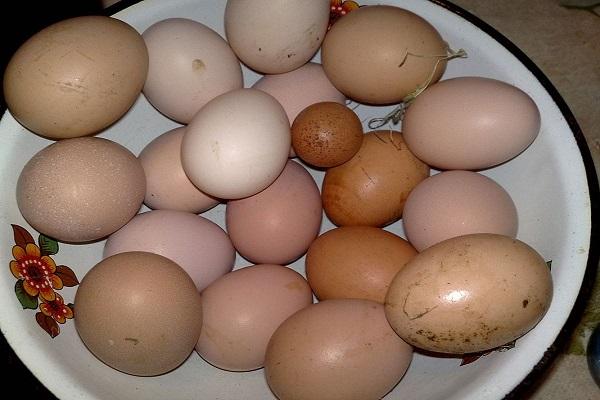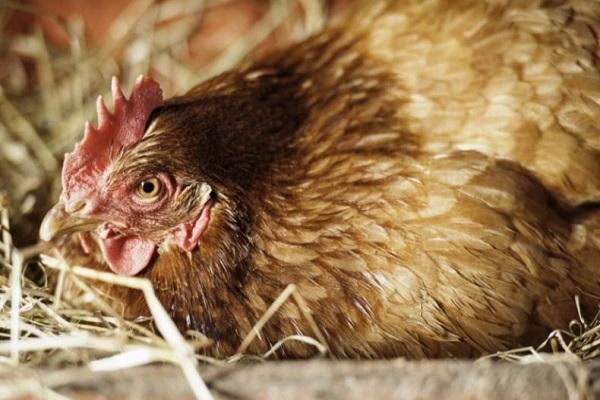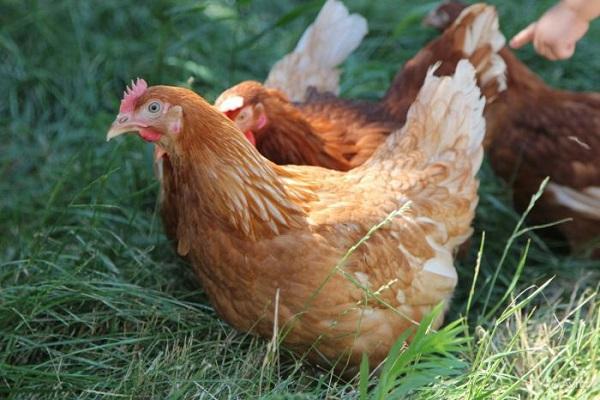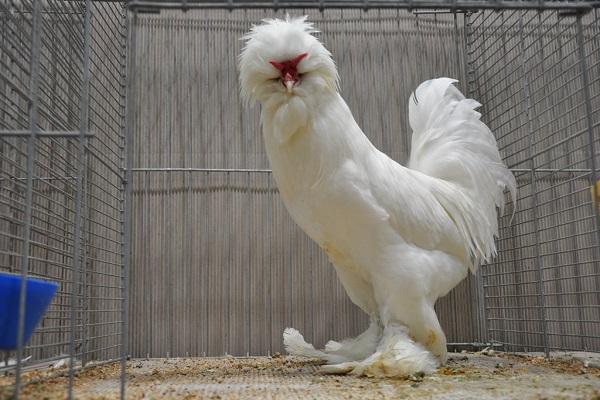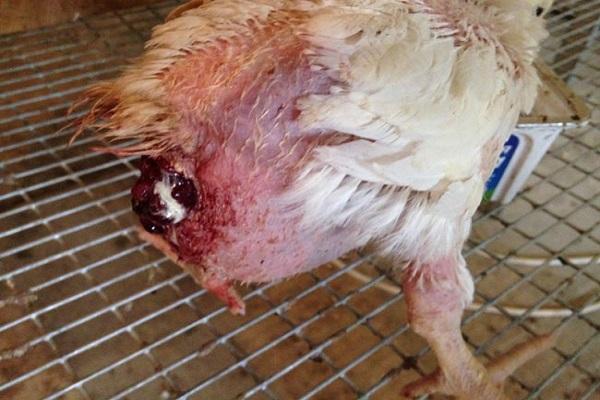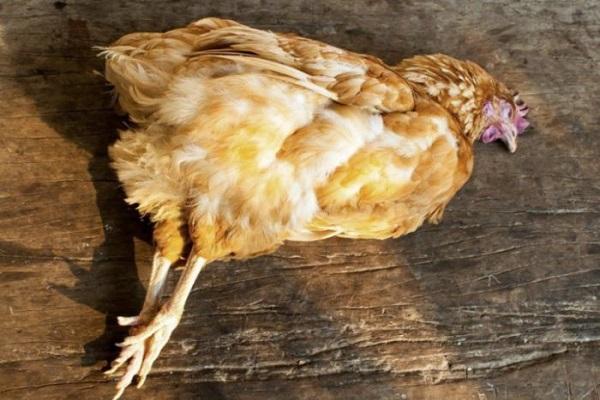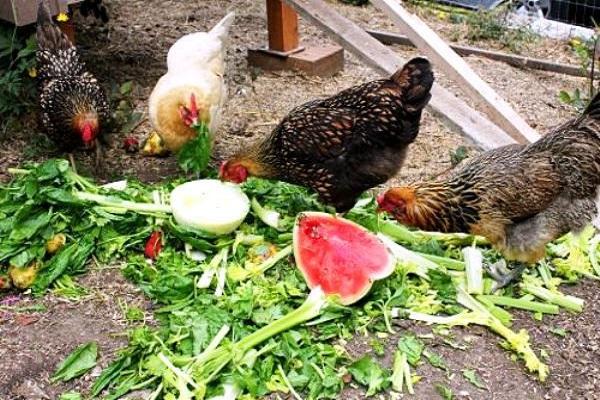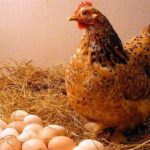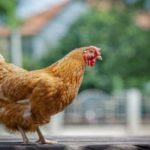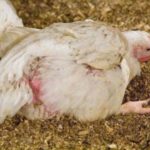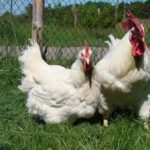Beginning poultry farmers are perplexed as to why some chickens lay small eggs. After all, all birds are provided with the same living conditions. Problems with egg production arise for various reasons. Sometimes chickens do not lay eggs well due to age factors or hormonal imbalance. Such phenomena do not require treatment; over time, the situation will stabilize on its own. True, in some cases small eggs appear due to illness in chickens.
Why do chickens lay small eggs?
Chickens of all breeds, except dwarf ones, lay eggs weighing 50-60 grams. There are egg and meat crosses. Their eggs are approximately the same size. The breeds differ only in productivity, that is, egg production. Egg-bearing types of chickens lay eggs almost every day and produce about 300 eggs per year. Birds of meat breeds can lay 100-200 eggs in 12 months.
True, throughout the life of chickens the size of eggs can change. The one-time appearance of small testicles can be ignored. You need to worry if the problem has become permanent. The appearance of small eggs is influenced by a number of reasons.
Age factor
A chicken can live about 10 years. It begins to lay eggs six months after birth. In hybrid breeds, egg production begins at 3 months of life. The very first eggs of young hens are always small. It’s just that the oviduct during this period is still too narrow and short, so the first testicles in it are formed in small sizes.
But small eggs from young hens are considered the most delicious. They have a standard sized yolk and minimal white. After 3-4 weeks, the situation will normalize, and the chicken will begin to lay eggs of normal size.
The laying hen reaches its greatest productivity at the age of 1-2.5 years. Then the bird’s egg production gradually decreases. Old hens usually lay eggs very rarely or produce small eggs.
Violation in light mode
Puberty in laying hens of ordinary breeds occurs 5-6 months after birth. At a certain period, birds begin to lay first small and then standard-sized eggs. If poultry farmers want to get eggs faster, they increase the daylight hours for laying hens. In this case, the chickens begin to lay eggs 2-3 weeks earlier than expected.
True, their testicles remain small for a long time.To solve this problem, you need to normalize the light regime. Birds should wake up at 6 am and fall asleep at 10 pm.
If, during normal daylight hours, a chicken lays a small egg, then the cause of the problem is different.
Physiology of the body and stressful situations
It takes less than 24 hours for an egg to form in the hen's body. The egg enters the oviduct and is overgrown with yolk, white, film, and calcareous shell. This entire process is controlled by the hormonal system.
True, sometimes, due to severe stress or improper care, birds experience hormonal imbalance. In this case, the chicken may lay a small egg or an egg without shell and white. A similar phenomenon can occur after transporting poultry, a sudden change in feed, during fasting, or due to loud noise that frightens the hen.
The hormonal background of the chicken is restored on its own and does not require any treatment. You just need to wait a few days for the bird to calm down or get used to the new place, you can give it more green food or a premix with vitamins.
Breed Features
Some large breeds of chickens produce eggs weighing 40-45 grams, while their relatives of the same size lay eggs weighing 50-60 grams. Before buying chickens, it is advisable to ask the seller about their name. The Sultanka breed has eggs weighing 40-45 grams.
The testicles of dwarf chickens are even smaller. Such birds can increasingly be found in poultry houses. Dwarf layers take up less space, do not require as much grain to feed them, but they produce small eggs weighing 30 grams. True, such chickens lay eggs every other day, and they also get sick less, since they come from wild species.
Foreign objects in the oviduct
Pebbles, feathers, litter elements or helminths from the intestines sometimes enter the oviduct of birds through the cloaca. Such foreign bodies cause the appearance of small testicles. The chicken's reproductive system perceives such objects as yolk. They begin to grow overgrown with white and shell, and the result is a small egg only without a yolk. Such phenomena are usually one-time in nature.
A similar problem is faced by those poultry farmers who do not care for their birds well and rarely change the bedding. If the rules of care are not followed, helminths appear in chickens. True, adult laying hens have a stronger immune system; foreign objects rarely enter their oviduct.
Inflammatory processes and increased peristalsis of the oviduct
The cause of the appearance of small eggs may be an inflammatory process of the oviduct. The disease is called salpingitis. With this disease, chickens eat poorly, but gain a lot of weight. Their abdomen enlarges, and the oviduct protrudes through the cloaca. The bird stops laying eggs or carries small, deformed testicles.
The disease can occur due to a lack of vitamin feed, after receiving a blow to the oviduct area, or when an infection penetrates the reproductive system.
Sometimes salpingitis appears after laying large eggs or as a result of increased egg production in young animals that have not reached puberty. Protein-rich feeds and increased daylight hours can provoke pathology and increased peristalsis.
The disease requires intervention; it is recommended to show the laying hen to a veterinarian. Usually, in this case, a little Vaseline is injected into the birds' cloaca for lubrication and the chickens are given intramuscular injections of Sinestrol and Pituitrin.
How to solve a problem?
If small eggs begin to appear frequently in nests, you must first determine which chicken is laying them. Then you need to find the cause and solutions to the problem. If small eggs appear in young chickens, you need to wait a couple of weeks; as the oviduct grows, the size of the testicles will increase until it reaches the standard size. It is undesirable to increase daylight hours in the chicken coop and stimulate early egg laying. It is better to wait until the birds reach natural sexual maturity.
It is advisable to change the litter in the chicken coop and clean it. It is recommended to give birds more plant foods, for example, fodder beets and greens. Vegetables have a laxative effect and eliminate constipation, which interferes with egg laying in chickens.
If laying hens have eggs with blood, the cloaca turns red, becomes dirty, and the oviduct protrudes from it, then the bird needs to be shown to a veterinarian. The veterinarian prescribes treatment, after which the chicken’s condition quickly returns to normal.
Prevention of the problem
The occurrence of such a problem can be avoided by keeping the chicken coop clean and changing the litter on time. Birds should walk in the fresh air, run, and develop their muscles. In this case, all their organs, including the oviduct, will work harmoniously. Chickens need to be given complete food, rich in vitamins and minerals. The diet of laying hens should include fresh vegetables, herbs, and fruits. These products improve the functioning of the digestive tract.
Birds should fall asleep no later than 10 pm and wake up no earlier than 5-6 am. In addition to the light regime, chickens, especially in winter, need to establish a normal temperature regime.The temperature in the poultry house must be maintained above 15 degrees Celsius; at lower temperatures, laying hens stop producing eggs. It is recommended to protect chickens from stress and loud noises, and give them food at least 3 times a day..

